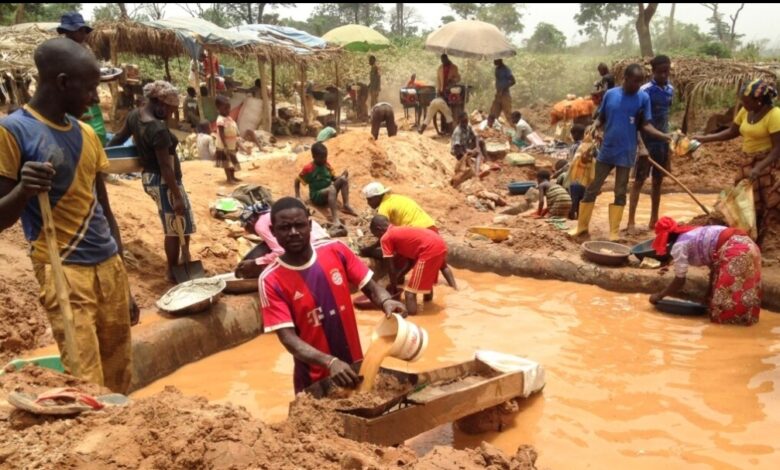Cameroon Shuts 30 Mining Sites After Fatal Landslide
At least 33 persons, including minors, died as a gold mining site caved in at the eastern border.

Not less than 30 mining sites, all located around the eastern borders of Cameroon, have this week been sealed by the government of the central African country following a landslide incident that claimed 33 lives, officials say.
The sealed gold mines include the ones owned by indigenous miners and those supervised by the Chinese.
The government had decided to shut down the mining sites even though it would affect some of the ongoing corporate social responsibility projects that the officially licensed mining companies are rendering to communities in the region.
Officials have not been able to find many other missing miners days after evacuating the deceased victims and survivors.
The Aug. 20 Kambele landslide occurred barely two months after the Cameroonian authorities announced the deportation of more than 1,000 illicit gold miners from Kemnele following the landslide-induced death of 27 miners in May. The majority of those evicted from the Kambele gold mining village were Senegalese and Central African nationals.
The Cameroonian authorities had on Monday, Aug. 22, sent hundreds of soldiers to Kambele, a townlet in the Batouri district, with an order to seal up at least 30 gold mines.
Due to the area’s high level of mining activities, Kambele has, over the years, become a hub for gold mine workers and prospectors from Cameroon, Chad, and the Central African Republic.
The burgeoning population in Kambele has caused the authorities in Yaounde to worry about the deplorable working conditions that may have led to the death of many during the seasonal gold mining The landslide occurred weeks after the Cameroonian government had banned mining activities in July 2022.
When troops and humanitarian emergency workers scanned through the collapse site, corpses of buried miners were pulled out alongside those who survived.
So far, not less than 33 miners, mostly school children on holidays, have been pulled out dead.
The public has not been informed if the missing or dead miners were Cameroonians or internally displaced persons from the Central African Republic. Cameroon has extant laws that prohibit children under the age of 14 from working, even though the legislation has severally been violated due to widespread poverty.
For now, the ban on mining seems indefinite as the government has not indicated when it will be lifted. This is already upsetting some officials of the mining firms who are saying that should they leave, several corporate social responsibility projects like building or renovation of roads, healthcare facilities, schools, markets and parks, will be abandoned.
Cameroon currently has more than 400 mining sites being run on the eastern borders of the country, of which the majority are illegal.
The country has had several cases of mining site mishaps in the past.
HumAngle gathered that poverty and lack of jobs have persistently pushed citizens to engage in risky enterprises like illegal mining or the engagement of minors in paid labour.
Forêts et Développement Rural (FODER), a Cameroonian government organisation in charge of forest and environmental development, has records of other mining site mishaps that occurred in May 2021, when two mining sites collapsed in Kambele, in the Batouri district, killing several dozen people, including children.
FODER said, between 2013 and April 2021, it recorded a total of 157 deaths at mining sites, a quarter of which were due to drowning and landslides in open pits left by miners.
Support Our Journalism
There are millions of ordinary people affected by conflict in Africa whose stories are missing in the mainstream media. HumAngle is determined to tell those challenging and under-reported stories, hoping that the people impacted by these conflicts will find the safety and security they deserve.
To ensure that we continue to provide public service coverage, we have a small favour to ask you. We want you to be part of our journalistic endeavour by contributing a token to us.
Your donation will further promote a robust, free, and independent media.
Donate HereStay Closer To The Stories That Matter




